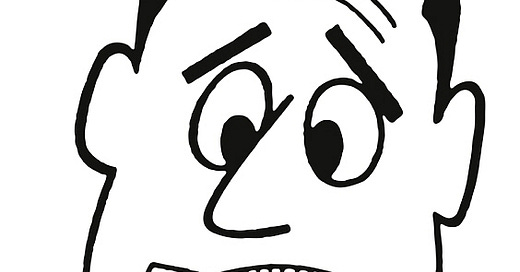Oldsplaining The Young Is Cheugy
If you want to hit different, skrrt the bla bla bla and listen. And a word on polling.
Polling
A word on polling. Actually a picture.
I was just listening to a podcast that involved a smart person interviewing another smart person about politics. Polling came up. Both of these smart people tripped into the same old trope: Polling … ehrg.. cell phones … ugh … can’t trust them. This, smart people publicly misrepresenting reality because they are stuck in a meme, is how falsehoods are maintained.
Inspired by this, I made a chart. This shows 11 top polling results just before the 2020 presidential election. Note that there isn’t even overlap in the central points for each poll (though certainly the margins of error overlap). Note that the polls called the race. This is the most recent presidential run, and therefore presumably best reflective of how polling works right now.
Polls do not predict the future. They measure specific things about the immediate past. That is useful information. Take it for what it is worth, and if used correctly, it is worth something.
Oldspaining
How many times have you been to a political meeting and someone says “we need to get more young people on board” or “we need to reach out to yoots” or words to that effect? Lots of times. Maybe almost every meeting that goes longer than a half hour, and they all go longer than a half hour. The conversation often veers into a discussion of strategies to find and recruit young folks, and sometimes, into a complain session about what the young folks are doing wrong.
I was at a meeting recently where some young people had somehow been wrangled up so the old folks that usually attend could hear what they had to say. The moderator told all the old folks to zip it while the young folks talked about their interests, concerns, and ideas about progressive politics. It was a pretty good meeting.
Then the moderator opened up the meeting so the old folks could ask questions. They were told to NOT make comments, but rather, just ask questions that the young folks would answer. Despite the fact that one or two of the oldies led off with commentary, most did just ask questions. The problem is, they all asked what looked like different questions, but were really all the same exact question:
“What the fuckity fuck is wrong with you people! Why don’t you think like we do, vote like we do, and act like we do, and how do we make you’all do that? Huh?
I’ve written elsewhere about the difficulties of outreach in political parties and other non-profit organizations, and said organizations try to increase diversity. I noted that internal active anti-racism coupled with being very open and inviting to everyone seemed to be the ticket in some of the organizations am involved with. Maybe this can work with recruiting and involving youth as well. If so, it has to start with active and intentional anti-agism within the organization.
Note that oldspaining is a thing, and make the recognition of this phenomenon something that is acknowledged frequently.
Note that wisdom does increase with age, but not by much. Ask people: Should we lower the voting age to 16? If the answer is no, you are talking to people suffering from agism and living under the delusion that American 40 - 55 year olds vote rationally. LOL.
Onboard thoughtfully. Ask young folks to take positions of responsibility but don’t leave them hanging. Any and all new volunteers in an organization, regardless of age or prior experience, should always be paired up with others who are part of the organization in a welcoming and helpful way.
Don’t treat young folks like commodities, tokens, or the key to open some magic chest of political goals. Don’t treat anybody like that.
Find some way to engage in youthosity. Rather than saying “tictok, ugh” get a damn tictock account and use it. It will make you feel less old!
What else? What other things can you do to engage the yough? Put your ideas in the comments. Please don’t oldsplain, though, no kidding.







LISTEN. When you don't understand a reference used by a person of a younger generation, respectfully, curiously, ask for an explanation. (Which is a good idea when engaging with someone of any generation, actually.) Graciously accept that people of different generations have different habits and different ways of engaging with the world, and being different is not a blot on their character. Things that are important to my generation are not to another, and vice-versa; that's just how society has evolved ever since we were primitive hominids. My generation's experiences are not necessarily germane to the lives of younger people, who have grown up in a different world.
Figure out what ought to be the smallest possible set of cross-generational values, and judge people accordingly. For example, I was recently reminded of a negative post comment I made about a bride treating a wedding guest badly because the bride thought the guest outshone her in beauty, and thus ruined the bride's "special day". Now, I have many negative opinions about modern weddings (shakes cane). But those opinions don't matter, and I rarely share them. I never share them with people planning their weddings. I do care that people treat others with basic respect, rein in their egos, and be polite or at least civil whenever possible. (That includes brides.) The younger people I regularly engage with tend to do that. Boomers like me and older often don't, insisting that they know better on every topic; they might be polite, but their approach ultimately disrespects the experiences of younger people. And yet, those older people THINK, because they're polite, that's adequate respect. It is most certainly not.